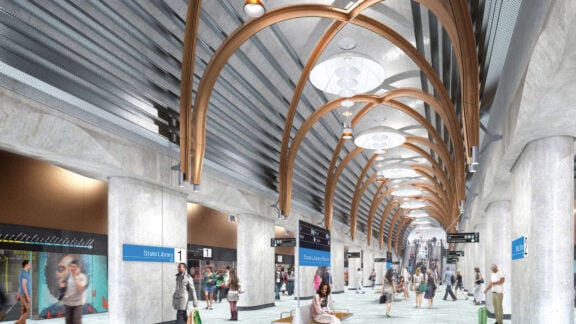It was make-or-break for Multiple Sclerosis sufferer Mary Philippou as she flew off to Russia with her mother to receive a specialised treatment (Haematopoietic Stem Cell Transplantion (HSCT) treatment) at the end of November 2021.
She returned to Melbourne on Christmas Day, and though it has been tough since then, she is on the road to recovery.
“I am a mother and wife again,” she told Neos Kosmos. “The recovery has been better than I had hoped but it has not been easy or plain sailing. The first two months I felt terrible but that is part of the recovery process.”
Last week she embarked on an exercise routine recommended by her exercise physiologist that will build up her stamina. She was in bed for 25 days after her return losing much of her muscle tone.
“I am slow but I will build up on it. I am so positive,” she said.
She said the recovery from the treatment was different for every person. For her it was important to stay standing as much as possible otherwise she would sometimes experience hours-long dizzy spells. The spells are now less frequent and the sense of vertigo that plagued her before her treatment in Russia has now also gone.
“I get up in the morning and I do things slowly, standing up so that I don’t have to stand up and experience dizziness.”
She is able to engage with her sons, Isaiah, who is six, and is attentive to his mother’s condition. Mary and husband Joseph Charbel have also developed a routine for baby Samuel who turned one this week.
“I do what I can – I tell them how I feel up front and share in the routine, so I am not missing out.”
When she left for Russia with her mother, Anthi, on 28 November, COVID-19 was in full swing and the new more transmissible variant, Omicron, was in the news.
The risks of travelling under such conditions were enormous. Contracting COVID-19 at this stage would have meant a 90-day delay in treatment pushing the already high costs of the journey through the roof. Mother and daughter boarded the aircraft wearing respiration masks and eye protection. They could only eat after everyone else on board had eaten.
“I had no choice, I did not think of the risks but looked on them as hurdles that we had to work around,” she said.
They landed in Moscow on 29 November and wer whisked to the Pirogov National Medical and Surgical Centre in the east of Moscow.
The first day was taken with a battery of tests and once the results arrived the following day, the treatment began with the insertion of dialysis catheters into her neck to begin the process of removing her stem cells – a process that lasted between five and six hours.
The HSCT involved the removal of the stem cells which were frozen, while she underwent a course of chemotherapy. The blood is passed through an apharesis machine to separate stem cells from the collected blood, which are then cryopreserved/frozen.
After a day’s rest from the chemotherapy, the process of reintroducing the stem cells took place.

“Two doctors and three nurses were there to monitor blood pressure, heart rate. You taste tomato in your mouth I felt hot and flushed my heart began to beat heavily for about 20 minutes. Then you are in isolation as the immune system starts to recover. It took me seven days, for some it is less for others it is longer.”
“I had about 10 minutes of human interaction when the nurses came in. I did a lot of YouTube and Netflix and I also talked to family and friends. It was good that I could talk at any time of day with my mother who was in a hotel in Moscow. The isolation and lack of contact did have an effect on me. I was at my most vulnerable with my hair shaved and there were big mental hurdles to overcome.”
She also kept an online diary (on Facebook) of her stay in Russia to help others thinking of undergoing the treatment in the future.
“I came in to contact with other people there who were receiving the treatment at different stages who were from Germany, Slovakia and Bulgaria.”
It was Christmas Eve when she left Moscow with her mother. The risks of infection were even higher than before because Omicron was by now well established. To reduce the risk of infection the two travelled in a first-class booth.
“I was so grateful Mum had come as I was very weak after the treatment. I have never been happier being home. I arrived in Melbourne on Christmas and was home at 2am. I was lost for words I was so happy.”
She said the recovery process, tough as it is, is not the same for everyone. But she feels that it is taking place and she is making plans for the future.
“My plans for now are to be less stressed, more mindful and spend more time outside. I am looking for a career change. I am not going back to my ultrasound career as it was a high-stress job. I am back studying to be a naturopath,” a course she began before the trip to Russia of which she has completed a year and a half of a four-year course.
“I don’t sit still because life is short. I get my energy from my late pappou, Michael Christodoulou who was a soccer fanatic and was known as the “Nut Man”, would sell bags of nuts at the football matches in Melbourne.
♦ See Mary Philippou’s public page documenting her day-by-day treatment experience: www.facebook.com/mishimouu









